Not that I didn't want to go. But my guide's idea of "not a bad hike" might be very different from mine. He's a seasoned mountaineer, and knows well the ways of the alpine. Sierra backpacking, cross county skiing, scaling rimrock and skating icy lakes are his passions.
But that also meant he was a proper pathfinder to lead the way.
And the Mountain had been calling.

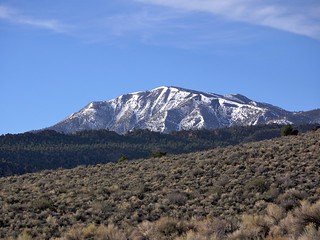
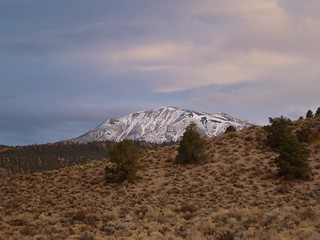
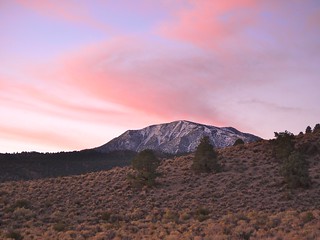
Glass Mountain (11,128 feet), Inyo National Forest, Mono County, in various seasons
"No need to conquer the peak," my friend advised. "I know a small plateau to the west that's more interesting."
As we broke clear of the lodgepole and jeffrey pines, and made the final ridgeline hike to a shoulder at just over 10,250 feet, it quickly became obvious why.
It's one of the sacred places. That grab your imagination, wonder, and awe.
Where the Earth's scars are exposed and show the signs of the never-ending elemental wars between Land, Fire, Wind & Water.
And a place where the ancient ones dwell - krummholzed trees of limber and whitebark pine, some likely over a thousand years old, twisted & scarred by those endless elemental attacks. Yet also timeless, charismatic and proud in their resilience and defiance.
In other words - a candy store for us naturalist kids.
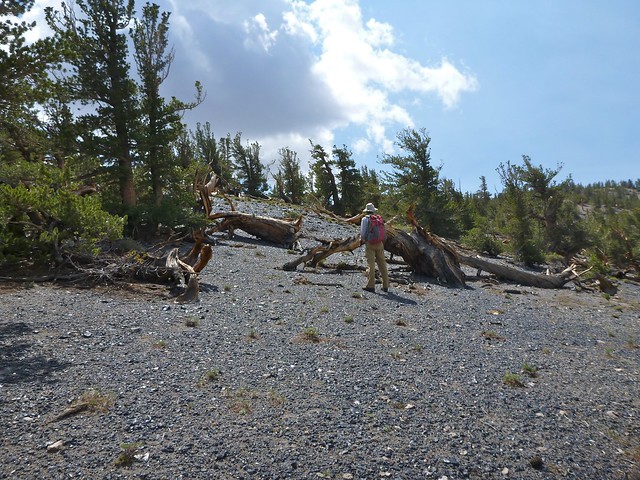
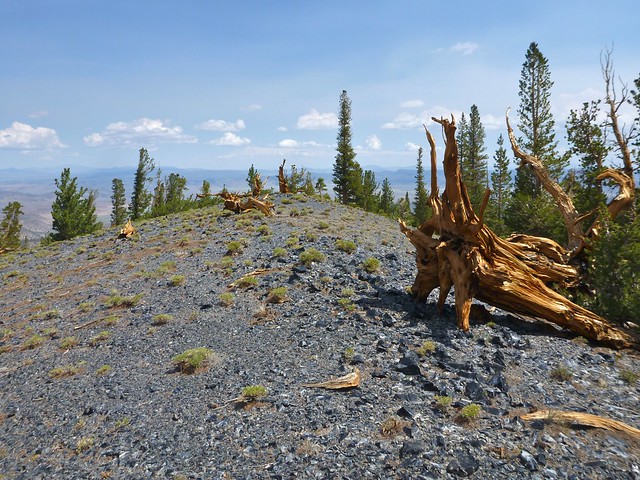
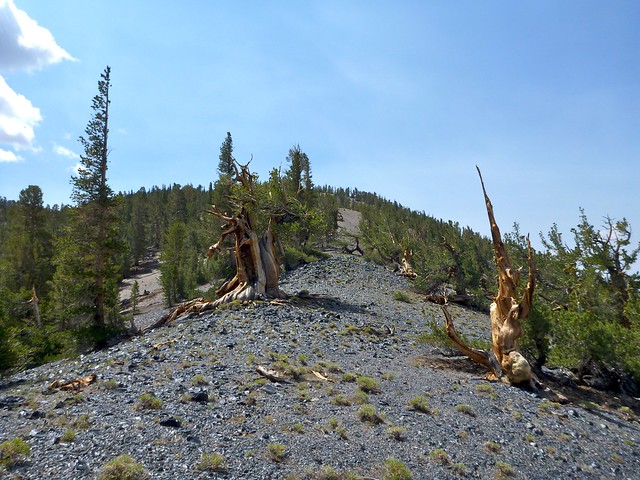
This king krummholz was my favorite, by far. Pretty sure it's a Limber Pine, Pinus flexilis. The exposed roots on the obsidian crest, the squat trunk… such character. Also note the branch that's broken and now horizontal (and pointing left), yet still alive.
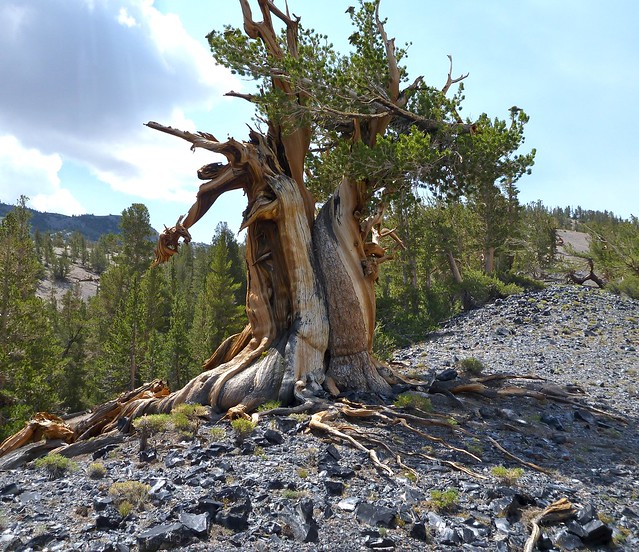
And here's the other side of king krummholz - can you tell which way the wind blows?
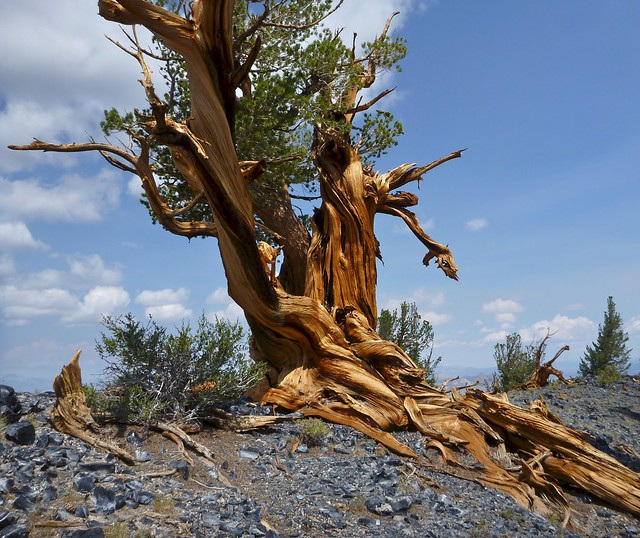
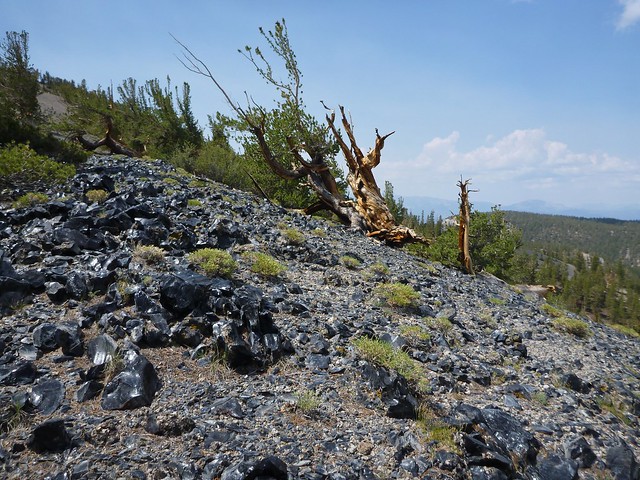
A past king or queen that lost the battle but lives on as alpine art:
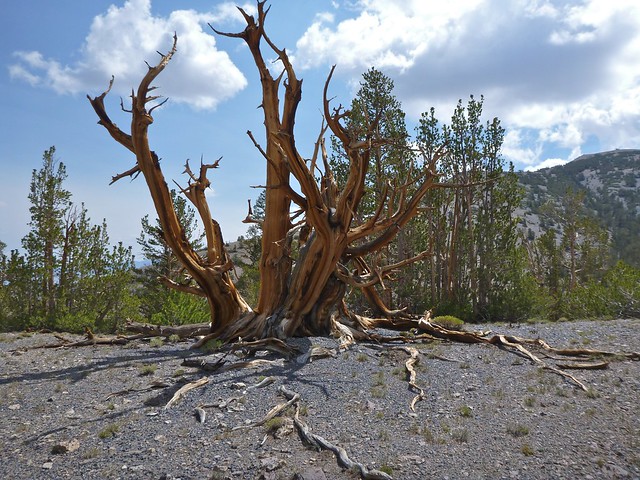

Once on the shoulder we could see down into Long Valley, which, at 20 miles across, is one of the Earth's largest calderas. It was formed after the eruption and volcanic collapse 760,000 years ago that spewed out the infamous Bishop Tuff so common to the area and west.
The older obsidian Glass Mountain was the only rim volcano not destroyed during the eruption.

Looking down on Long Valley - a caldera that blew 760,000 years ago

In addition to lovely views and stunning trees, we also saw a few alpine flowers along the way.
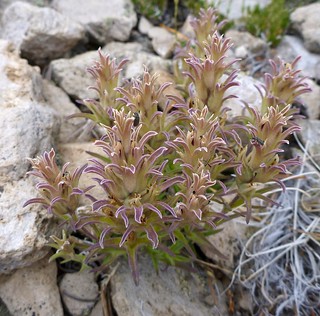
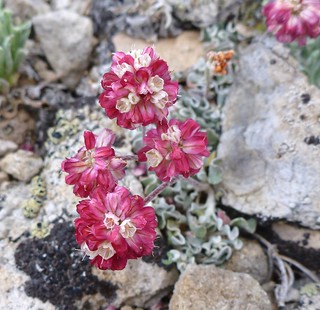
Alpine Paintbrush, Castilleja nana & Cushion Buckwheat, Eriogonum ovalifolium var. nivale
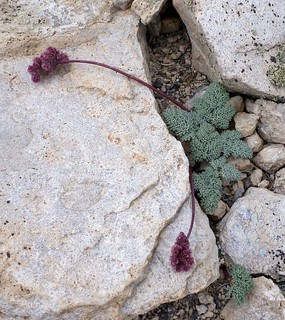

Gray's Parsley, Cymopterus cinerarius & Silky Raillardella, Raillardella argentea
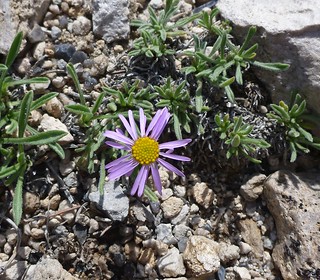
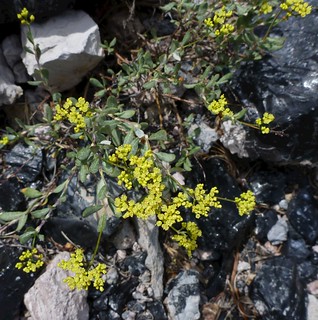
Pygmy Fleabane, Erigeron pygmaeus & Great Basin Buckwheat, Eriogonum microthecum
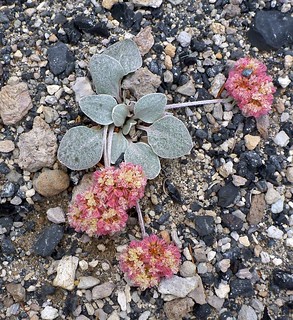
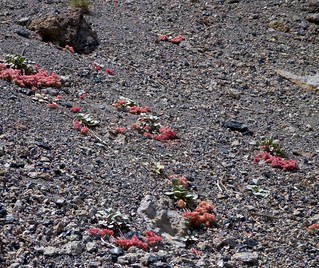
And Lobb's Buckwheat, Eriogonum lobbii, that looked like berries strewn across the scree
After a lunch, we took a different route back down, through an amazing obsidian canyon...
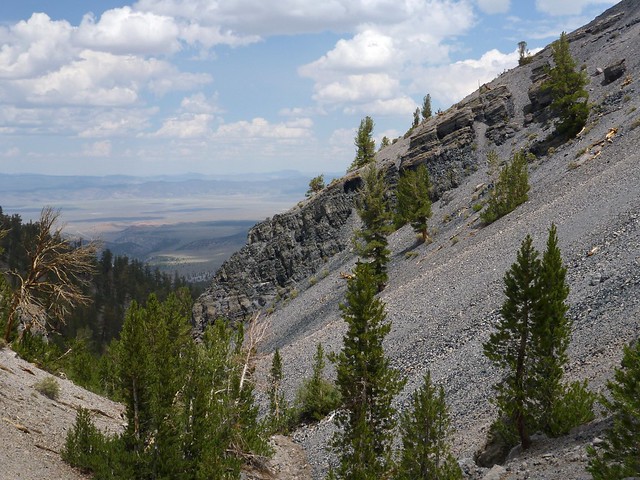
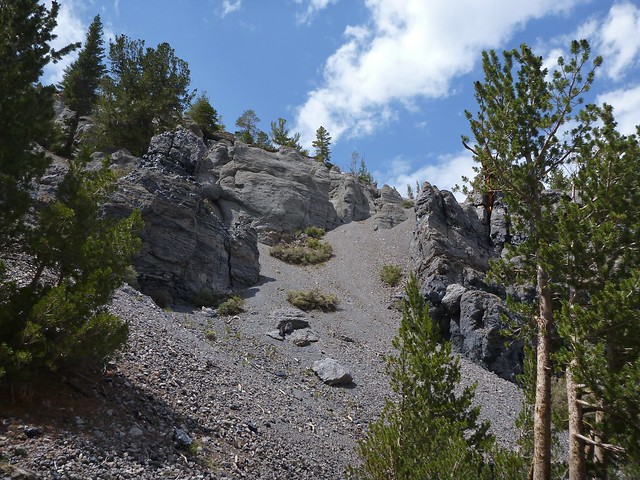
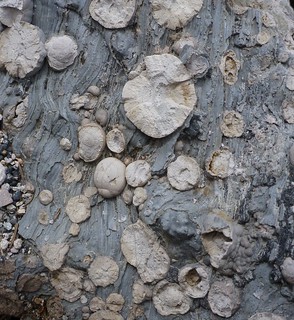
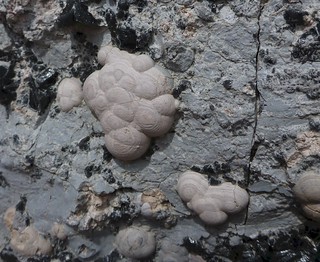
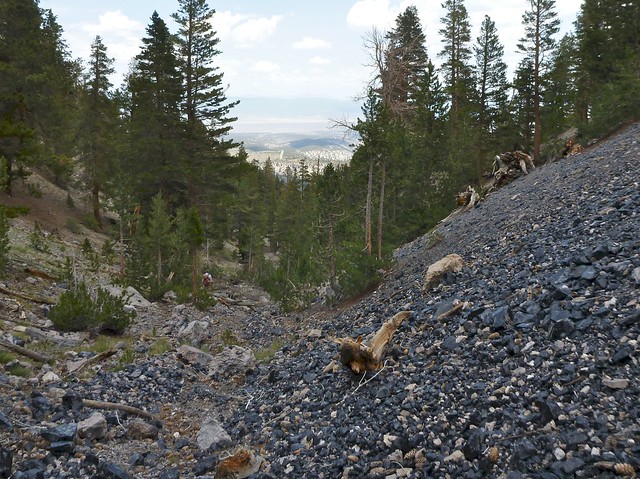
And my friend and guide was right - it wasn't a bad hike.
If you wanna see more, here's the full album of 70-ish photos, in chronological order.
====
References:
- Nature of a Man (this blog) - Krummholz und Knieholz
- Wikipedia - Glass Mountain (California)
- Wikipedia - Long Valley Caldera
- Wikipedia - Bishop tuff
- Wikipedia - Krummholz
- Jepson eFlora - Pinus flexilis
- Jepson eFlora - Pinus albicaulis



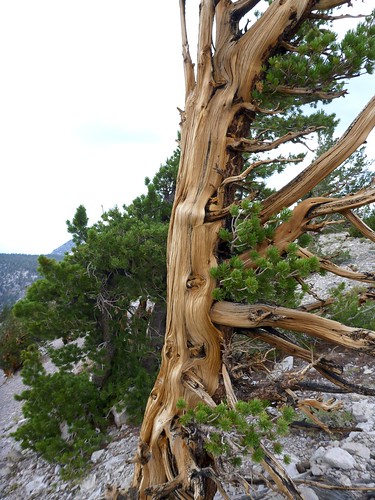
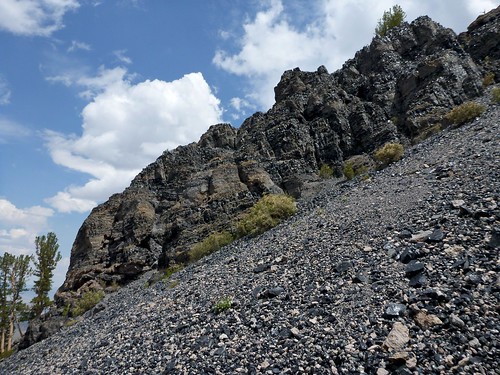
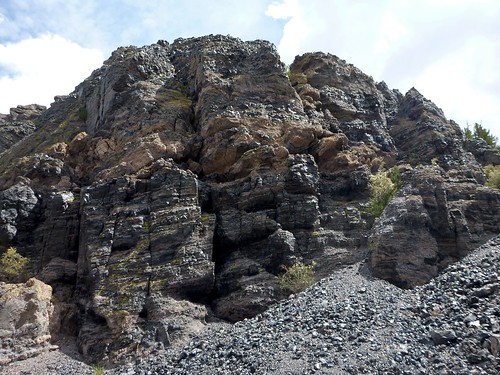
Sick landscape
ReplyDeleteBitchin' nodules ;)
ReplyDeleteSo cool to find this post this morning. I was on the (north-?) east side once, about 10 years ago. The landscape blew my mind -- obsidian and krumholz, wow!
ReplyDeleteYes, surreal and otherworldy. I don't know all the access points, but the typical trailhead is at Sawmill Meadows, almost directly east of the peak. We came in from the northwest and this saddle is west of the peak.
Deletegorgeous!
ReplyDeleteI climbed up to the summit from Sawmill Meadow in June 2013. It was tough, but awesome.
ReplyDelete